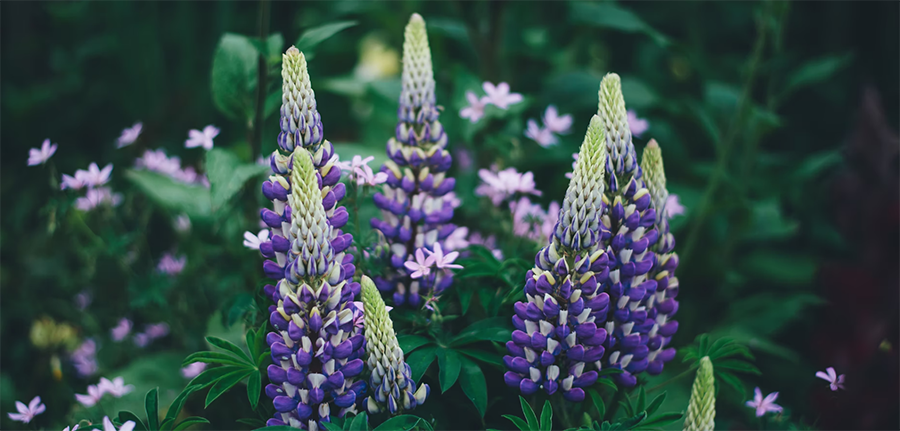One of the reasons we love perennials is that, every spring, they breathe new life into our gardens without any digging or planting. The best way to keep them happy and ready for spring is by taking a little extra care of them when the weather is cold. Here are five tips for caring for your perennials this winter.
1. Limit, but Don’t Eliminate, Watering…Yet
Give those thirsty plants a few more watering sessions before the ground freezes. You can cut back on how much water you’re giving them to help them harden off, but make sure to give them some nice drinks to help strengthen their root system; perennials that are stressed by drought will be more likely to die over the winter. Once the ground freezes, you can eliminate watering for the winter season.
2. Show Perennials You Care this Winter: Offer Them a Warm Home
Perennials that are native to this area may fare well over the cold, dark winter months, but those that are delicate or from warmer climates may need to be brought in and protected from deep freezes. Dig up the bulbs of more fragile perennials and store them in a dry, dark, cool area until the weather warms up in early spring.
3. Trim the Stems and Foliage of Your Perennials
There are two schools of thought on this, and neither is wrong. You can cut your perennials back to between six and eight inches to minimize your spring clean up and eliminate the possibility of leaves rotting, or you can leave those seed heads for winter birds to enjoy. If you choose to leave them, make sure to make a reminder to cut them back once the weather warms up.
4. Give Them a Nice Warm Blanket of Mulch
Get your perennials ready for winter by insulating them with around two to five inches of mulch. It doesn’t matter what you use; grab some pine needles, grass clippings, or commercial mulch. Not all plants need this mulch, though; here are three reasons your perennials may welcome this cozy blanket:
- Some plants aren’t native to the area, and are more sensitive to the cold.
- Maryland is prone to frequent freeze-thaws.
- If the perennials are newly planted, they will need the extra protection.
Hold off on applying the mulch until the ground is frozen to a depth of one to two inches.
5. Pull Those Lingering Weeds
We know that pulling weeds isn’t your favorite chore, especially if you’re in a parka! Still, pulling weeds in winter is an easier process than in the spring, as most of them have weakened roots. And think of starting spring without those weeds on your chore list! If they’re stubborn and you can’t get to their roots, wait until after a nice rain shower when the soil is softer. This is also the best time to lay out some weed block fabric and prevent further arrivals of unwanted guests in your garden.
6. Think About Erosion Control
If you battle soil erosion every spring, tackle it now. Erosion control doesn’t have to be overly complicated or expensive; you can use stone or a pre-made compost filter to keep melting snow from drawing your garden in the spring.
7. Add Compost Before the Big Freeze
If you haven’t already put fertilizer or compost around your perennials, now may be the perfect time to do it. Make sure to do this before the ground freezes, which usually happens in mid to late December.
Let RELS in Frederick and Silver Spring Help You Winterize Your Garden
From mulch to compost, topsoil, erosion control filters, and stone, RELS is your garden partner for helping you care for your plants. Browse our huge selection of products and find easy solutions to get your perennials ready for winter.

